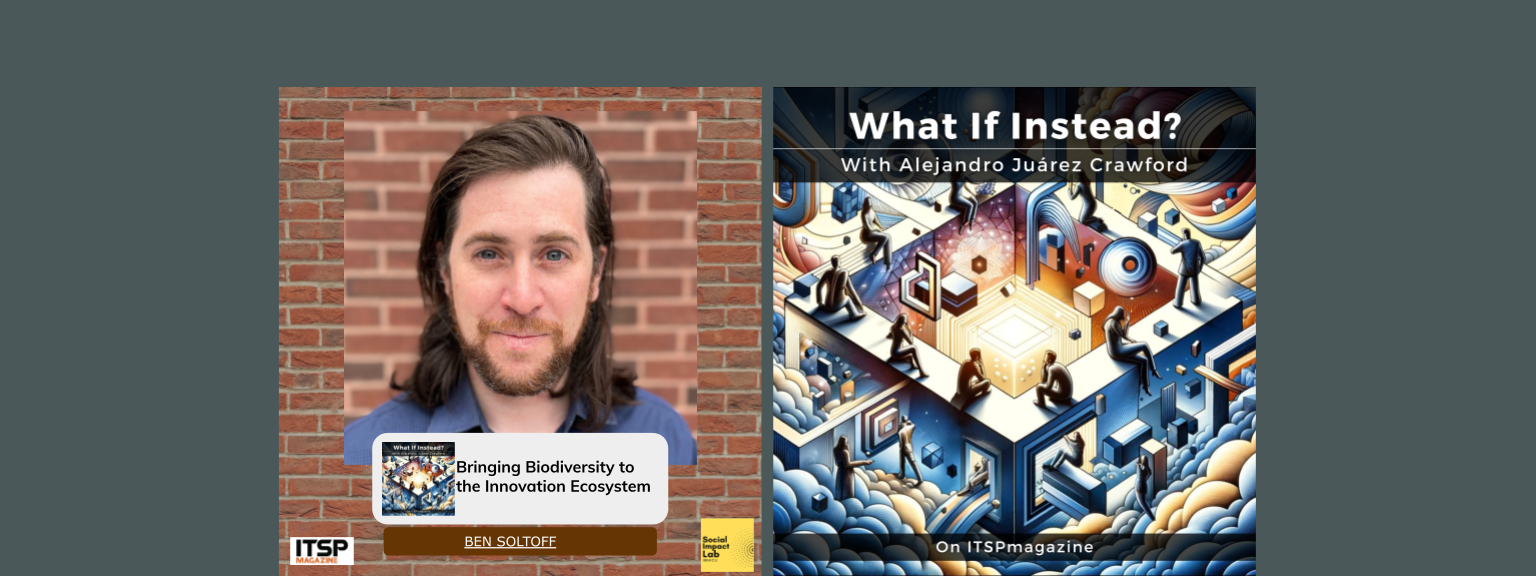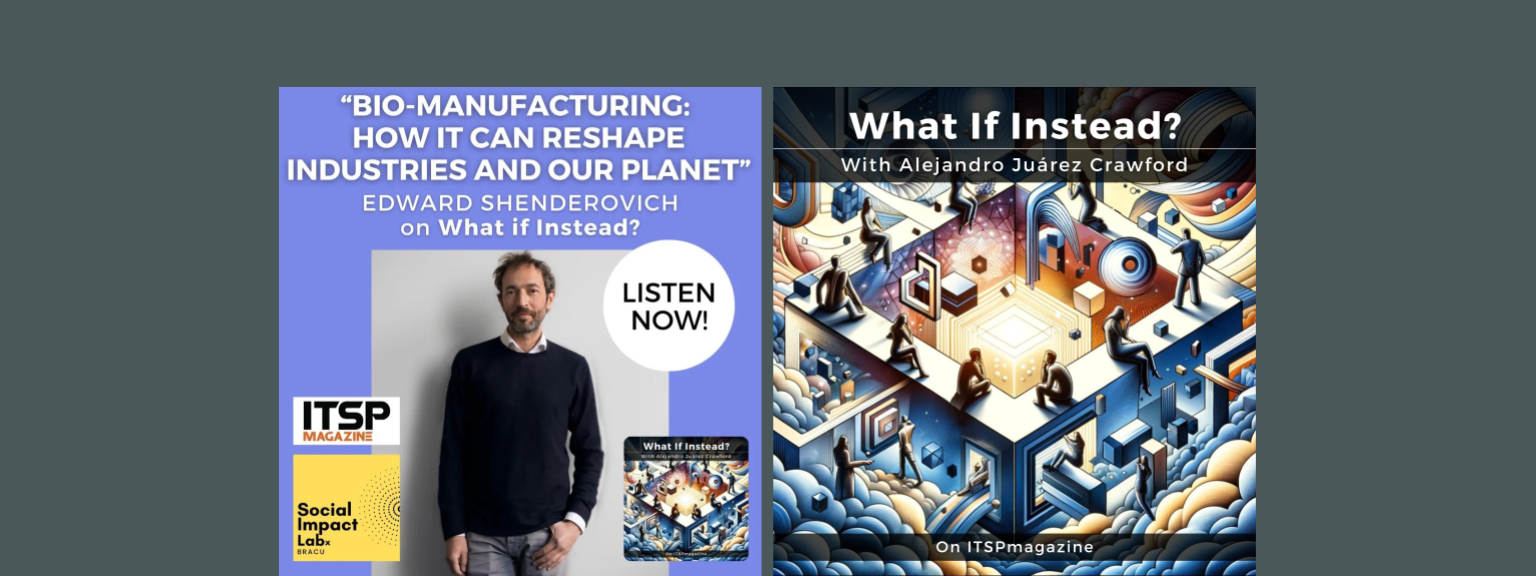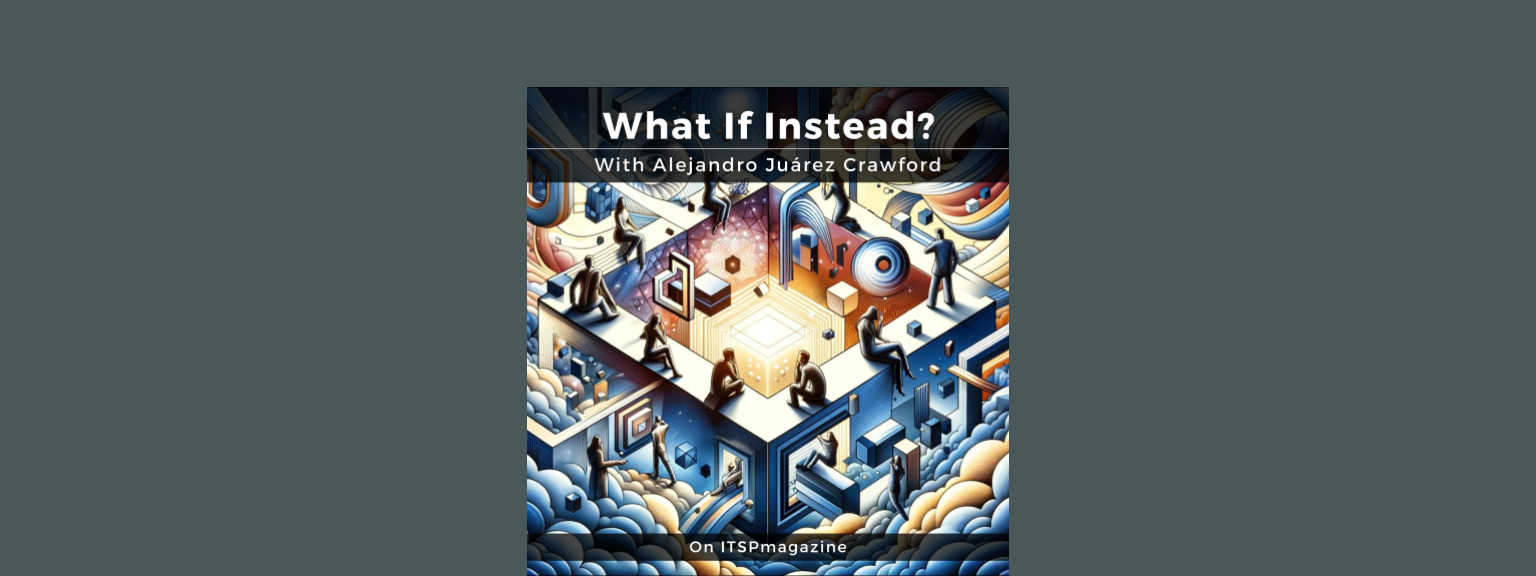Bringing Biodiversity to the Innovation Ecosystem
In the eighth episode of the “What if Instead?” podcast, cohosts Alejandro Juárez Crawford and Mim Plavin-Masterman interview Ben Soltoff, the ecosystem builder-in-residence at the Martin Trust Center for MIT Entrepreneurship. Soltoff focuses on guiding students through the complexities of entrepreneurship, particularly when it comes to launching climate solutions. This involves doing e-ship well – but it also entails a shift in how we think about climate innovation. For example, we don’t always think of words like “affordable” when it comes to green products. Soltoff insists that we must:
You can’t just build the cool thing. You have to build the useful thing, the affordable thing, the functional thing…you’re not going to know those criteria until you talk to people. Going even further, Soltoff says that the value of an MBA program lies in harnessing technology to create tangible impact: The whole point of having an MBA program, a management program at a place like MIT is to think about the business applications of technology…not just how do you make money from it, but how do you turn technology into something that has impact in the world. To do that, the tech needs to get off the shelf, and into people’s hands: But a lot of MIT technology just sits on a shelf…sits in the pages of a research journal, sits in these IP logs. And part of our goal is to help folks explore how to bring that out to the world. To get there, Soltoff highlights the necessity of going beyond building solutions in isolation and emphasizes the critical role of engaging directly with potential customers. This involves a deep dive into understanding what makes a product useful, affordable, and functional from the customer’s viewpoint. With climate technology, there are two tools that come to mind as two of the most important tools in the toolbox. One is what we call primary market research. Others call that customer discovery. And it’s that process of going out, and learning about your customers. Who are they? What do they care about? What are their demographic criteria? What’s going on in their world? Who might they have to answer to? To achieve this, Soltoff highlights the value of open-ended questions for overcoming confirmation bias, encouraging students to focus on understanding problems rather than leading conversations toward preconceived solutions. This approach helps uncover deeper insights into customers’ needs and challenges. Part of it is being open-ended. It’s not just not asking follow-on questions. It’s making sure that that initial question is as open as possible. This goes against what for many of us is a deeply ingrained habit of ‘leading the witness’ to push the solution we’ve hit on. A lot of folks want to lead the conversation in a certain direction…don’t bring that solution in front of the people that you’re talking to. What you want to uncover is the problems…the worst possible questions are, you know, would you use this thing if we were to build it? To address climate change, Soltoff emphasizes, we’ve got to break down broad public problems into specific customer problems that can be addressed through entrepreneurial ventures. A large-scale issue like climate change requires identifying smaller, manageable problems that entrepreneurs can tackle effectively. Climate change is a very public problem. It’s something that we experience globally…but it’s not a narrow enough problem. It’s not a bite-sized problem that you can tackle with a single entrepreneurial venture. So to go from a big public problem like climate change to a private problem that’s experienced by a specific customer…there’s a journey to do that for climate. We’ll never get there by taking the superhighway, as it were. Instead, Soltoff emphasizes, we’ve got to focus on the “dirt road” of entrepreneurship, highlighting the necessity of early exploration before reaching more structured stages of development. This metaphor underscores the importance of navigating the initial, often uncharted, phases of entrepreneurial ventures: We’ve started to call [this] the dirt road…it doesn’t just apply to climate, it can apply to health and education as well. The idea is that, you know, we teach entrepreneurship, we’ve kind of paved this road. It’s not a superhighway necessarily, but there’s at least a paved road that you can navigate once you know how. But that dirt road before it, we don’t have a lot of resources…students love that exploration and that early exploration is a key first stage of the journey. By enabling people to do this, Soltoff argues, we can achieve ‘biodiversity’ not just in the natural world, but in the vital ecosystem of climate innovation. Tune into the episode to find out how. Bringing Biodiversity to the Innovation Ecosystem | A conversation with Ben Soltoff | What If Instead? Podcast with Alejandro Juárez Crawford and Miriam Plavin-Masterman What if Instead? is produced by Srijan Banik and the team at Social Impact Lab at BRAC University, which Banik founded. Cohosts Mim and Alejandro’s One Size Fits None: Time for an Entrepreneurial Revolution, is forthcoming from Emerald Publishing in Summer 2025For those interested in further exploring topics discussed in this episode, Soltoff has shared several valuable links:Soltoff’s forthcoming book on Climate Entrepreneurship: https://climateandenergystartups.com/ Additional Links:


